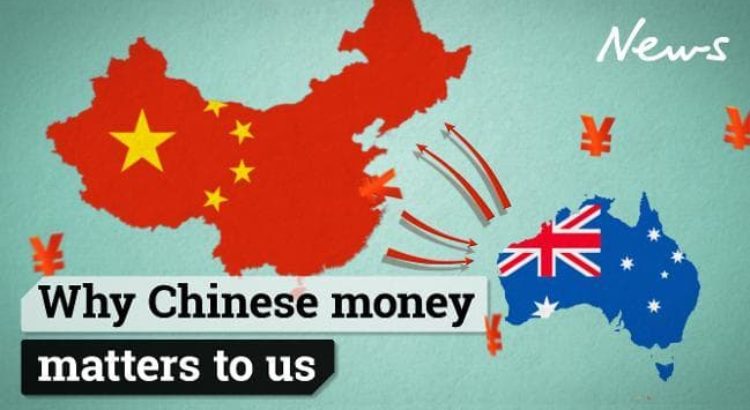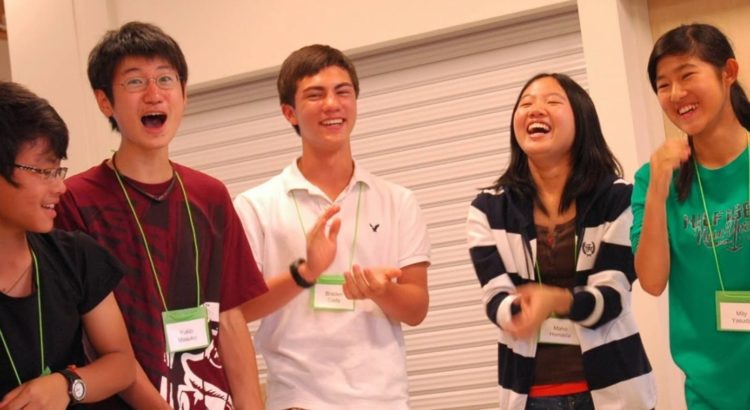Oceania/ Australia/ 17.10.2018/ Source: www.news.com.au.
IT WAS 3.30pm as I waited at a popular Melbourne cafe in the heart of the city. I had arranged to meet Xing Wu, a 32-year-old Chinese international student from the Fujian Province in the southeast of China.
I had arrived early — enough time to sit back and watch pedestrian traffic. I couldn’t help but notice the high levels of young Asian students streaming past to Central Station, across the road from the city campus of RMIT.
When Xing arrived, I offered the traditional Western greeting of a handshake and a hello. In return, he offered me the traditional Chinese custom of a gift — in this case a sweet Chinese berry drink, bought from one of Melbourne’s ever-increasing supply of Asian specialty stores.
I had arranged to speak with Xing to better understand his experience. Why study here?
Why travel thousands of kilometres and pay exorbitant fees? In Xing’s case, he has paid around $64,000 for a two-year accounting course.
His response was surprisingly simple and relatable: “I wanted to experience the outside world. Away from the Chinese regional life where my father works as a public servant and my mother who is a retired factory worker.”
When discussing his studies, Xing laments the hardest part of his course is the high level of English proficiency required.
While he had hoped to improve his English here, one of the biggest challenges is that he’s just one of thousands of other Chinese students in Australia. He’s much more likely to speak Mandarin in his day-to-day interactions than English.
“There were so many Chinese students in the class, everyone reverted back to speaking it together.”
Xing’s insight isn’t surprising. He is just one of 187,547 Chinese International Students who were enrolled to study in Australia in 2017-18.
Education is Australia’s third largest export after iron ore and coal, other industries heavily reliant on the Chinese purchasing power.
It’s a statistic that worries Peter Jennings. He was a senior adviser for strategic policy in the Howard government, and he’s now executive director of the Australian Strategic Policy Institute, a think tank focused on international relations and defence.
“Australian Universities are overly reliant on Chinese international students, causing an unhealthy dependence from catering to this market” Mr Jennings said.
“This (over-reliance) has left many universities highly vulnerable to either a natural reduction in Chinese students, or at the potential whim of the Chinese Government.”
While that sounds alarmist, Mr Jennings believes there’s sinister activity already occurring.
“There have been cases of Chinese students reporting back to the Chinese Embassy on fellow students that have not followed Beijing rhetoric.”
“It is a possible scenario that China could ban their students from attending Australian Universities over a diplomatic row.”
Mr Jennings believes Australian universities need to cap the number of students they accept from each country, in order to avoid being overly reliant on one economy.
“Australian universities need to stop being so greedy. The ongoing obsession of universities to continue to expand enrolments from international students needs to stop. If this results in a reduction of revenue, that is the price that needs to be paid.”

This year there are nearly 200,000 Chinese students studying in Australia. Picture: The Department of Education and TrainingSource:Supplied
While a worst-case scenario of a full withdrawal of Chinese nationals enrolled in Australian universities might appear far-fetched, there have been recent examples of
serious push back from the Chinese Government over international disagreements.
One example that has caused South Korea pain is Seoul’s agreement to deploy the US Terminal High Altitude Area Defence system to counter military threats from North Korea.
Beijing countered this decision by putting in place a consumer boycott of certain products. Hyundai in particular was hurt badly. Sales dropped by 64 per cent in the second quarter of 2017.
The company’s own research institute said this led to a revenue loss of $21 billion.
Australia has also felt the threat from Beijing in recent years.
When former Prime Minister Malcolm Turnbull attempted to introduce laws that would have banned foreign political donations, required registration of lobbyists, and strengthened anti-espionage laws the blow back from Beijing was swift — despite
the idea being blocked in parliament.
In the following weeks Australia was voted “the most unfriendly country” to China in 2017 in a poll of about 14,000 Chinese citizens conducted by the tabloidGlobal Times(owned by the People’s Daily).
MORE: Tensions rise as Chinese Government’s influence infiltrates Aussie universities
But Universities Australia deputy chief executive Catriona Jackson doesn’t think there’s cause for alarm.
“International education has been a huge success story for Australia — one that has been built up deliberately and strategically over the past 60 years,” she said.
“Not only does international education bring $32 billion worth of export income to our economy and support 130,000 jobs — it gives Australia access to a future network of business and political leaders and makes an important contribution to Australia’s foreign policy, soft power diplomacy and regional security.”
She dismissed Mr Jennings’s arguments as “a distraction”, confident that the sector would continue to thrive.
Returning to Xing’s story, it’s clear he, along with all other international students, are providing this country with much more than money.
Looking at the stores and restaurants surrounding RMIT, you can see that Melbourne, like many other Australian cities, is changing.
And even if many of the students frequenting those businesses eventually go home to China, we’re making global connections with tomorrow’s leaders, changing the way they think.
Xing sums it up well. After a lifetime of learning in China where he was told to listen and follow, he’s now been taught to “think critically and embrace an independent learning model”. Although he plans to return home to look after his parents, his world view has been impacted for life. And it could affect generations to come.
Source of the notice: https://www.news.com.au/finance/economy/australian-economy/economy-relies-on-china-as-international-students-prop-up-our-universities/news-story/6bea7fc2c0c7dbd364346b74722c67df









 Users Today : 1
Users Today : 1 Total Users : 35460210
Total Users : 35460210 Views Today : 1
Views Today : 1 Total views : 3418896
Total views : 3418896